Theodore “Ted” Besmann, Center Director
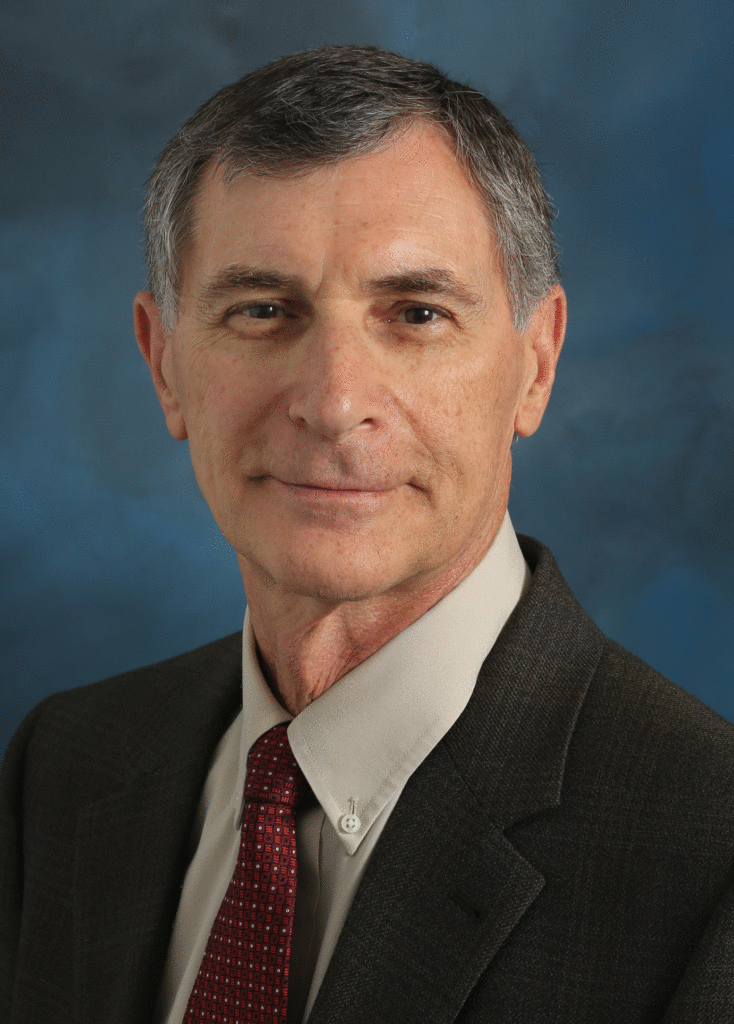
Dr. Besmann (CV) is Professor and General Atomics SmartState Chair for Transformational Nuclear Technologies at the University of South Carolina and has a Joint Faculty Appointment with Oak Ridge National Laboratory. Previous to USC, Prof. Besmann led a research group at ORNL, most recently in the Materials Science and Technology Division. Current research focuses on the development of novel accident tolerant and molten salt nuclear fuels; experimental measurement and computational modeling of the thermochemical behavior of nuclear and other materials. He is responsible for the development of the Department of Energy Molten Salt Thermal Properties Database-Thermochemical for molten salt reactor systems, generating a public database for fluoride and chloride systems. Prof. Besmann is also Deputy Director of a DOE Energy Frontier Research Center led by USC, the Center for Hierarchical Waste Form Materials. He is a Fellow of both the American Ceramic Society and the American Nuclear Society.
Research Assistant Professors

Juliano Schorne-Pinto earned a Ph.D. in Materials Science and Engineering from the Institut National Polytechnique de Toulouse for his research at the CIRIMAT and Laboratoire de Génie Chimique (LGC). His undergraduate and master’s studies were completed at the Université de Montpellier and Universidade Federal do Rio Grande do Sul (UFRGS) in a dual-degree path in MSE and Physical chemistry of materials, respectively. His research focus includes thermodynamic modeling of materials, crystallography, and thermo-structural and thermodynamic characterization of materials.
Postdoctoral Scholars

Jorge Paz Soldan Palma earned his PhD in Materials Science and Engineering from the Pennsylvania State University in 2022, where his research was based on the studying the thermodynamic stability of the Yb14MnSb11 thermoelectric compound when exposed to extreme conditions. Dr. Palma’s current research is focused on the thermodynamic modeling of molten salt systems and broader aspects of modeling and computing these properties.

Ronald Booth earned his Ph.D. and M.S. in Mechanical Engineering at North Carolina State University in 2021. He also holds a B.S.E. in Engineering Physics from Murray State University. At NC State, his research work was focused on flexible semitransparent electrode fabrication and implementation for wearable electronic and organic photovoltaic devices. Ronald’s current work is addressing the thermodynamic modelling of tri-carbide fuel mixtures for nuclear thermal propulsion applications.

Aiswarya Padinhare Manissery holds a PhD in chemistry from the Homi Bhabha National Institute, Mumbai, India. During her PhD, worked determining ternary phase diagrams relevant for understanding the interaction of structural steel materials with lead-bismuth liquid metal reactor coolant. While working as a postdoctoral research associate at the Bhabha Atomic Research Center, India, she was involved in the determination of the thermochemical properties of different ternary oxides using calorimetric and emf methods. As a postdoctoral researcher in the General Atomics Center, her research interests are on the structural characterization and thermodynamic modeling of nuclear materials with an emphasis on molten salt reactor-related systems.
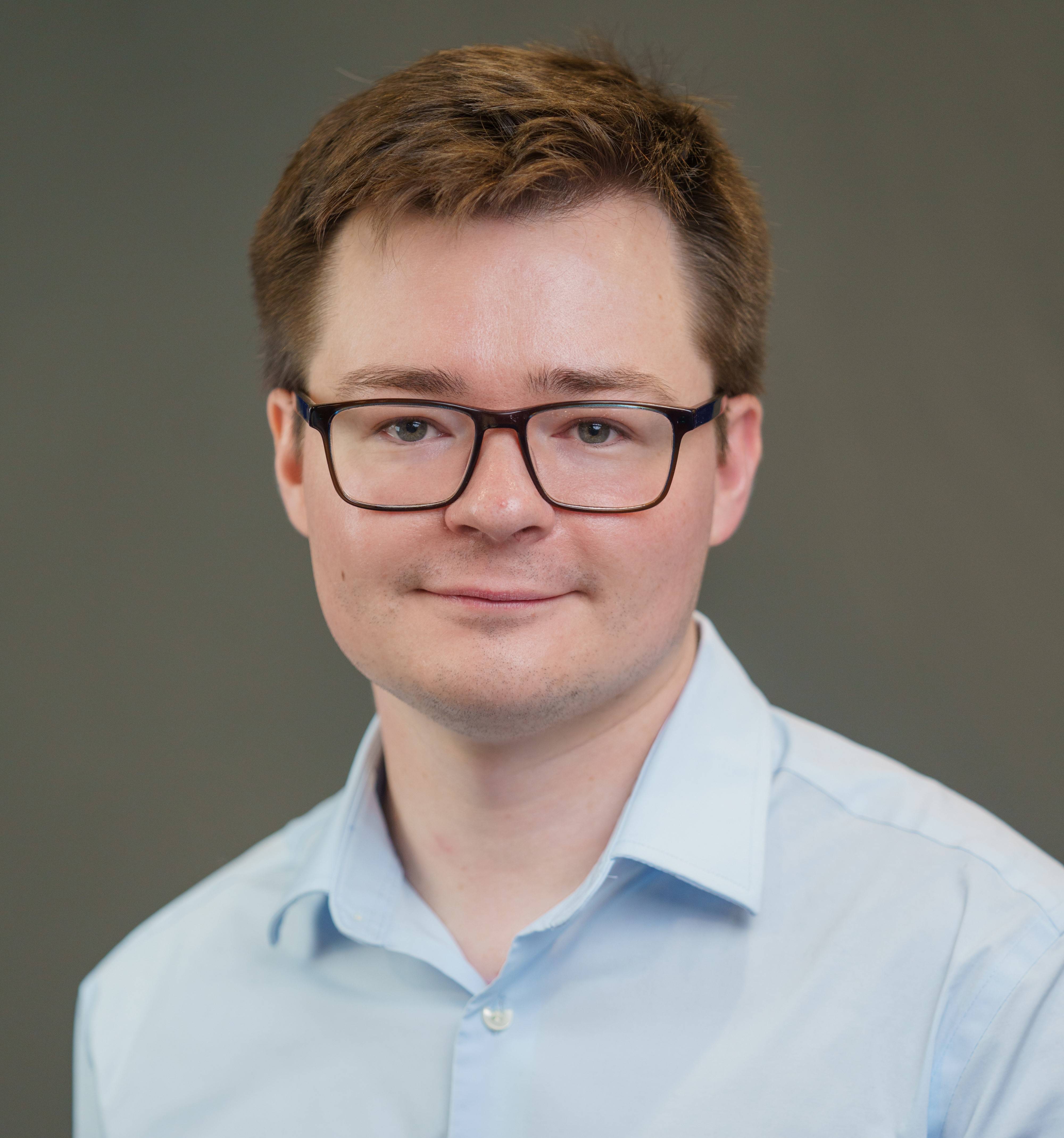
Jack Wilson earned his PhD in Nuclear Science and Engineering from Bangor University, UK, with funding from the National Nuclear Laboratory, UK, and Nuclear Energy Futures Centre for Doctoral Training. His research focused on developing complex and high-entropy alloys for light water fission reactors, combining atomic-scale simulation and targeted experiments. His research in the group focuses on developing thermochemical databases for Generation IV molten salt reactors and modeling the behavior of nitride and carbide nuclear fuels.
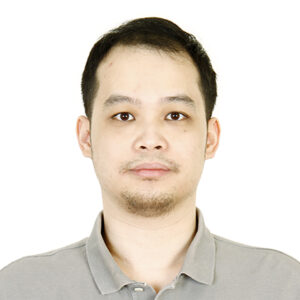
Pandu Wisesa earned his Ph.D and M.S in Materials Science and Engineering from the Johns Hopkins University. He also holds a B.S. degree in Materials Science and Engineering from University of Illinois. His graduate work focused on accelerating first-principles calculations by the application of informatics. He was previously a postdoc at the University of Pittsburgh working on the development and application of machine learning interatomic potentials for metals and oxides. His current research focus is on the application of first-principles calculations and other related models in understanding the thermodynamics and kinetics of salts at high temperatures.
Students

Clara Dixon is a PhD student in the Nuclear Engineering Program and has a Nuclear Regulatory Commission Fellowship. She earned her Bachelor of Science degrees in Chemistry and Biology with a minor in mathematics from the University of Washington – Bothell in 2020. She realized her passion for thermodynamics and physical chemistry as an undergraduate, and decided to pursue a PhD in nuclear engineering because she is a big proponent of clean energy and is passionate about environmental conservation. Her current research consists of thermodynamic modeling of molten salt systems, in particular systems containing volatile fission products cesium and iodine.

Zachary Gardiner is currently an undergraduate student in the Honors College class of 2027 at the University of South Carolina pursuing a bachelor’s degree in chemical engineering. He plans on obtaining an accelerated master’s degree in nuclear engineering. Zachary is highly interested in Generation IV nuclear reactors, especially molten salt reactors, and is very excited to be working with the General Atomics Center. Zachary is also a member of the American Nuclear Society.
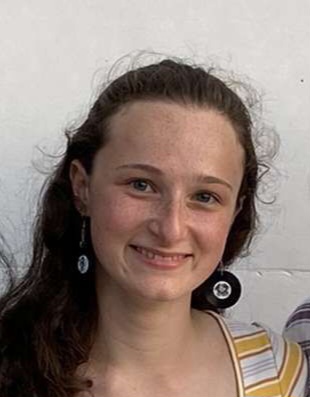
Annabelle Husek is an undergraduate student at the University of South Carolina class of 2027. She is pursuing a bachelor’s degree in chemical engineering with a minor in mathematics. She is interested in a career in chemical engineering with a focus on nuclear reactors, specifically molten salt reactors. Annabelle is hoping to be able to help with innovations in the safety and operation of nuclear reactors to help make them more environmentally safe for increased use. She is excited to be working in the General Atomics Center to learn more about molten salt reactors.
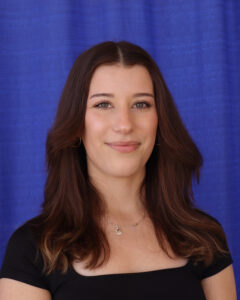
Lianna Eaton is an undergraduate student at the University of South Carolina, class of 2028. She is pursuing a bachelor’s degree in chemical engineering with a minor in business administration. Lianna is a member of the American Institute of Chemical Engineers (AIChE) and the University of South Carolina’s Alpha Lambda Delta chapter (ALD). She is interested in a career in nuclear engineering, focusing on nuclear reactors and molten salt reactors. Lianna aims to contribute to research and innovations in the operation of nuclear reactors to enhance their environmental sustainability. She is eager to learn more about molten salt reactors through her work at the General Atomics Center.
Alumni

Amir Mofrad earned his Ph.D. in chemical engineering from the University of Missouri-Columbia in 2020, where his research focused on the application of electronic structure calculations to vibrational spectroscopy and gas encapsulation in zeolites. He also holds a bachelor’s degree in chemical engineering from Sharif University of Technology. Amir’s current research and activities in Dr. Besmann’s group focus on predicting Raman spectra of complex molten salts as well as modeling these crystalline materials using density functional theory calculations.

Mina Aziziha earned her Ph.D. and M.SC. in Condensed Matter Physics from West Virginia University (WVU). At WVU, she synthesized and characterized strongly correlated complex oxides. She studied the optical and magnetic properties of materials, experimentally and computationally, with potential optical devices and spintronics applications. As a postdoctoral researcher, her research focus was on thermodynamic and structural phase characterization and thermodynamic modeling of materials. She is now working at Intel as an LTD Module Engineer.

Jacob Yingling gained his career interest in nuclear power while pursuing his undergraduate degree in Chemical Engineering at Brigham Young University. Since then, he served his country as an Active-Duty component of the Navy Nuclear Propulsion Program where he taught courses in Math, Physics, and Reactor Core Dynamics at the Naval Nuclear Power Training Command. He completed a Master of Science in Nuclear Engineering at USC through his work modeling silicon carbide clad uranium silicide fuels. Jacob’s PhD thesis was on “Thermodynamic Assessment Of Chromium Corrosion in the Na-K-Mg-U(III,IV) Chloride Salt.” On graduation he accepted a position as a post-doctoral fellow at the Idaho National Laboratory.

Johnathon Ard earned a Bachelor of Science in Physics with a concentration in Mechanical Engineering from Kennesaw State University in 2017. His undergraduate research focused on the physiochemical analysis of cerium-doped bioactive borate glasses as a novel carrier for cerium nanoparticles. Johnathan’s thesis was on “Molten Salt Thermal Properties Database – Thermochemical Development and Thermodynamic Assessment of Various Molten Salt Systems.” On graduating he has taken an engineering position with Boeing

Ceren Kutahyali Aslani earned her Ph.D. and MSc degree from the Institute of Nuclear Sciences, Ege University focusing adsorptive separation of actinides from solutions. She obtained BSc from the Chemistry Department of Ege University. Between 2006 and 2008, she worked as a post-doctoral researcher at JRC-Institute for Transuranium Elements on a project of spent fuel waste forms corrosion studies. Her research focuses on synthesis of new sorbent materials, composites and nanostructures for partitioning of actinides and lanthanides for radioactive nuclear management purposes. After her work at UofSC she has taken a position with Los Alamos National Laboratory.
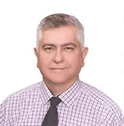
Mahmut Aslani earned his Ph.D. in Nuclear Technology from Ege University, on the thorium sorption by using silk fibroin and utilization in low level radioactive waste. He earned his MSc and BSc degrees from Institute of Nuclear Science and Chemistry department of Faculty of Science, respectively, at Ege University. He has experience using gamma radiation spectroscopy, alpha spectroscopy, UV-visible spectrophotometry, and emission spectroscopy. He has also experience on separation and purification of uranium, thorium, strontium and lanthanum using Column Chromatography, HPLC and ion exchange techniques. Recently he focused on synthesis of phosphors materials for thermoluminescence applications and also estimating their thermodynamic properties by molecular dynamics simulations. Mahmut is now research staff at New Mexico State University.

Matthew earned his PhD in Chemistry from Dalhousie University in 2018, where he developed surface-chemistry models using dispersion corrected density functional theory (DFT). Matthew also has a M.S. in chemistry from Virginia Tech and a B.S. in Chemistry from the University of California, Santa Barbara. His research had been focused on modeling complex uranium-containing molten and crystalline salts using both DFT and thermochemical models. He is now at Sandia National Laboratories continuing his work on these types of materials.

Dr. Mallikharjuna Bogala received M.S. degrees in both Metallurgy and Analytical Chemistry from the University of Alabama in 2015 and 2009, respectively, and his doctoral degree in Materials Science in 2016. These followed his obtaining a M.Tech. degree in Modern Methods of Chemical Analysis from the Indian Institute of Technology Delhi in 2004 after a five-year Integrated M.Sc. in Chemistry from Pondicherry University in 2002. Bogala’s research interests include synthesis of high-temperature materials by sintering and arc-melting techniques, carrying out mechanical, thermochemical and thermophysical property measurements using cracking/rupture tests, TGA/DSC, XRD, and SEM/TEM microanalysis, and CALPHAD assessments of the thermochemistry and phase equilibria of materials systems.

Kyle Foster obtained his Bachelor of Science in mechanical engineering in 2019 and immediately began to pursue a Master of Science in the same field from the University of South Carolina. Nuclear fuel systems gained his interest during his undergraduate degree and led him to seek research within the field. His research concentrated on computationally modeling the behavior of nuclear fuels for use in reactor simulation codes. Kyle completed an M.S. degree in Mechanical Engineering and is now working at steam supply engineering firm in Charlotte, NC.

Dr. Kaitlin Johnson received her Ph.D. in Chemical Engineering at the University of California, Davis, previously obtaining her M.S. there and her B.S.E. in Chemical Engineering from Arizona State University. Her current research focus is on the production and characterization of sol-gel materials and the encapsulation of biomolecules in such materials for the development of biosensors and energy and fuel production. Her research at UofSC involved experimental determination of phase equilibria in simulated uranium silicide nuclear fuel with fission product elements. She derived complex thermochemical models for these systems that allow prediction of in-reactor behavior. Her other activities have been in modeling molten salt nuclear fuel systems from both extant information and her DSC measurements. After completing her work at UofSC Johnson took a position as a post-doctoral fellow at Oak Ridge National Laboratory, and has subsequently moved from there to work at Kairos Power, LLC.
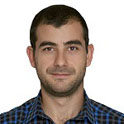
Vancho Kocevski earned his Ph.D. in Solid State Physics at Uppsala University, Sweden, in 2015, before working as a postdoctoral fellow in the Materials Science and Engineering Department at Northwestern University for two years. His research interests include thermodynamic modeling of materials, electron microscopy, and developing and utilizing methodologies for materials discovery and design. He has experience using computational materials approaches such as density functional theory, ab-initio and classical molecular dynamics, and the multislice method. Dr. Kocevski is currently working at the Los Alamos National Laboratory.

Denise Adorno Lopes has a bachelor in physics, earned a master’s and Ph.D. degree in metallurgical and materials engineering from São Paulo University. She worked for five years at the Brazilian Navy Technological Center, where she performed research on fabricating, characterising and testing properties of U-Mo and U-Nb-Zr alloys for nuclear fuel plate concept. Before coming to UofSC she was a post-doctoral fellow at the Reactor Physics Department of Royal Institute of Technology – KTH in Sweden, where she conducted integrated modeling and experimental work on UN and U3Si2, including ab initio calculations and thermophysical measurements. Dr. Lopes is currently on staff at Westinghouse Electric Sweden.

Emily Moore earned a Ph.D. in Physics from the École Polytechnique for her research at the Commissariat à l’énergie atomique et aux énergies alternatives (CEA-Saclay). Her undergraduate and masters studies were completed at the University of Arizona, with Bachelor degrees in chemistry and German studies, and a Master degree in Material Science and Engineering. Her research focus includes chemical thermodynamics and materials properties of nuclear fuel and fission products, with competencies in thermos-kinetic modelling using CALPHAD methods and molecular dynamic simulations. Dr. Moore is currently research staff at the Lawrence Livermore National Laboratory.

Mark Noordhoek earned his bachelor’s degree in materials science and engineering from the University of Michigan in 2009 before going on to earn his Ph.D in the same area from the University of Florida in 2014. His research interests include thermodynamic modeling of materials, crystallography and methodologies for materials discovery and design. He has computational materials science experience using first-principles (density functional theory), classical molecular dynamics and the CALPHAD method.

Tashiema Ulrich (formerly Wilson) earned a bachelor’s degree in chemistry from the University of West Florida in 2015. She holds a Nuclear Regulatory Commission Fellowship which is supporting her pursuit of a Ph.D. in nuclear engineering at the university. She worked on the thermochemistry of advanced nuclear fuels for clean power generation, investigating the properties and behavior of uranium silicide-nitride fuels using both experimental and computational methods. Her work was part of a project joint with Oak Ridge National Laboratory and Los Alamos National Laboratory. Ulrich graduated with a Ph.D. om Nuclear Engineering in December of 2019, accepting a position as a post-doctoral fellow at Los Alamos National Laboratory. She has subsequently moved on to now hold a staff position at the Oak Ridge National Laboratory.

Stephen Utlak obtained a B.S. degree in Bioengineering at Clemson University and an M.E. degree in Nuclear Engineering at the University of South Carolina in 2011 and 2013, respectively. Upon graduating from UofSC, he accepted a position with Savannah River Remediation, the liquid waste contractor at the Savannah River Site (SRS). In 2015, he took leave from SRS to work toward a Ph.D. in Nuclear Engineering at UofSC. His research project was supported by the U.S. Department of Energy Office of River Protection, with an objective to thermochemically model the high-level waste glass expected to be produced at the Hanford Site with the goal of characterizing nepheline precipitation equilibrium behavior. Utlak graduated with a Ph.D. in Nuclear Engineering in June 2019 and is currently working at the Savannah River Site.